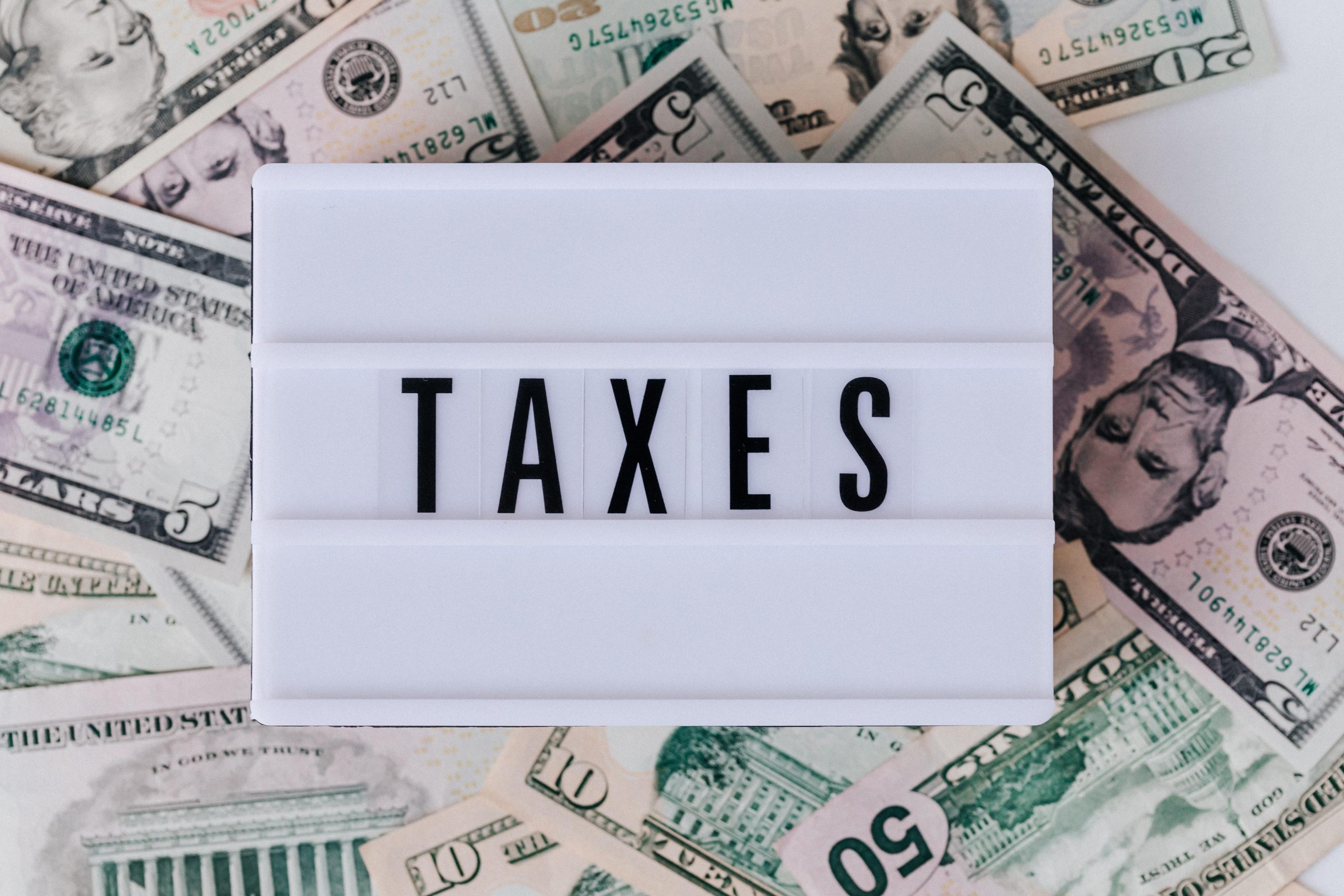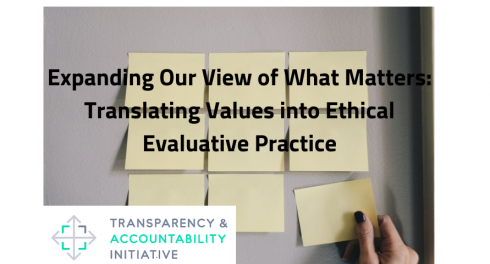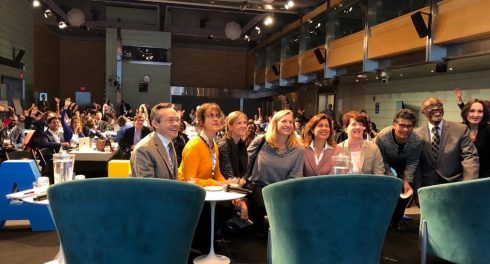Highlight
- Pattern of abuse
- Lend to what effect?
- No big reveal
- Deal or no deal
- Investing contradictions
- TAI Spotlight: COVID-19 Monitor Issue 2
Pattern of abuse

Photo by Teemu Paananen on Unsplash
Health fears amid a global pandemic are hardly conducive to enabling public protest, but many governments are making life harder still for those seeking to exert civic freedoms. CIVICUS detail patterns of restrictions and attacks since April in their latest report. Those risks extend to formal accountability actors – see the death of the head of Liberia’s internal audit agency, latest in a spate of audit-related fatalities.
Risks of repercussions have not prevented tens of thousands going to the streets with calls for reform and accountability in Thailand, while Cypriots have continued to protest corruption in their country’s ‘golden visa’ scheme. Yet, there is cause to be wary everywhere. Julia Reticker-Flynn at the Piper Fund details the urgency of protecting the right to protest in the United States as the country wrestles with the pandemic, the upcoming election, and the search for racial justice.
As Katitza Rodriguez and Veridiana Alimonti remind us, repressive tactics can extend to high tech spying. Reflecting on practice across the Latin America region, they make a strong call for increased surveillance transparency. Check out their specific policy recommendations.
On a more positive tech note, Samira Sadeque underscores how digital technology has been crucial in keeping people connected and maintaining a sense of community during the pandemic and lockdowns. Tech is also an important element in Ravi Gurumurthy’s (overly optimistic?) prescription for strengthening innovation approaches to tackle complex societal problems.
Lend to what effect?

Against the backdrop of the IMF and World Bank Annual Meetings, the latest international debt statistics are grim – low and middle income countries had a total debt of $8 trillion at the end of 2019, equivalent to 26% of their gross national income. Worse, an analysis by Eurodad points out the G20’s debt service suspension initiative has only covered 1.66% of debt payments for countries enrolled in the program.
The Center for Global Development worry that the World Bank response is too little and too slow. Their analysis builds on published institutional data, but not all development finance institutions are sufficiently transparent, especially not on results. Check out new Publish What You Fund research on the topic, while Marco Serena, head of the Private Infrastructure Development Group, shares his views on the value of transparency and the challenges of being open on impacts.
No big reveal

Photo by Karolina Grabowska from Pexels
Given mounting debt, national pressures to raise taxes will only increase. Certainly, the prospect of countries moving forward with new digital taxes increased this week as there is no deal on a new international digital tax regime or minimum tax under the OECD process. Read where things stand in the latest OECD tax report to the G20, and have your own say in the latest round of public consultation. Responses of ICRICT and Tax Justice Network give a flavor of civil society frustrations. It made for an interesting backdrop to the World Bank’s annual Tax Sunday Conference focused on Base Erosion and Profit Shifting.
On a more positive note, the International Budget Partnership put out some fascinating reflections on civil society roles in tax policy reform building on a hefty literature review and with specific country case examples to follow. Civil society actors may take advantage of the Center for Global Development’s new dashboard to assess fiscal policy in low-income countries, including macroeconomic parameters, revenue composition and efficiency of tax collection, types of expenditures, and some incidence and redistributive effects of fiscal policy.
Essential Watching #1
The Economist’s latest Disruptor film series focuses on innovative ways to tackle corruption around the globe. Check them out.
Deal or no deal
The IMF’s anti-corruption challenge was won by the Government Transparency Institute and the UK Foreign, Commonwealth and Development office for their project using big data to tackle public procurement risk. Perhaps it can offer pointers to other parts of the UK government as the Financial Times reports that £10bn in COVID related contracts were awarded without a competitive bid process. Nor is it just national governments balancing trade-offs – multilateral development banks have also been hastening procurement with attendant risks.
The case of Honduras highlights the potential of open contracting to provide confidence in procurement decisions. The Nigerian federal government hopes for a similar end result as it announces a 1.6bn naira investment in a new e-procurement system that “has the potential of improving procurement process, eliminate corruption and reduce the leak time in the procurement process itself.”
Read here for examples of COVID procurement investigations from Albania to South Africa. Pair with Open Ownership’s new beneficial ownership visualization tool and what budget transparency has to do with reducing potholes in Ukraine.
The Central African Coalition Against Kleptocracy are using their voice to expose regimes who steal public resources and endanger their own citizens, while Rebecca Root examines how we can beat corruption in the water sector.
Successful anti-corruption reform addresses social and political pressures that influence behaviors, as an investigation into Burundian tax avoidance shows. In similar vein, we highly recommend listening to Yuen Yuen Ang discus the many flavors of corruption around the world on Slate’s podcast.
Staying in the research vein, Rachel Pierotti at the African Gender Innovation Lab demonstrates innovative thinking by mixing qualitative and quantitative evaluation methods to produce more meaningful results in development projects.
Essential Watching #2
Global Financial Integrity and Fintelekt examine illicit Gold in India, the second largest consumer of gold in the world, and dig into money laundering risks.
Investing contradictions

In time for its latest Board meeting, the Extractive Industries Transparency Initiative (EITI) announced the Lundin Foundation as its newest partner and offered insight into how Mexico can beat corruption in the extractives sector. Publish What You Pay urged EITI to do even more on the energy transition in this open letter while Juliet Ferguson worries that the European Union is locking itself into a gas powered future contrary to Green New Deal ambitions.
Angus Lam looks at Belt Road Initiative investments in Southeast Asia, resulting tensions, including concerns over corruption and reinforcing civil society and indigenous voices, and urges the US to retain a commitment to public accountability in the region in counterpoint.
Staying in the region, it turns out that Singapore listed companies are less transparent than their counterparts in Malaysia and Thailand.
Yoko Watanabe at UNDP and Nina Kantcheva at Indigenous Peoples and Local Communities Engagement reflect on the importance of finding ways to partner with indigenous peoples.
Rise Together Fund shares how they address racial disparities in their grantmaking practices, while Lucie Addison, Learning and Improvement Lead at the Einhorn Collaborative offers reflections on how to manage transition at a funder – responsibly exiting past funding streams while realizing new areas. A timely read given it is hard to imagine that there is any funder who has not faced internal demands for change in response to 2020 events.
TAI Spotlight: COVID-19 Monitor Issue 2

TAI COVID-19 Monitor Issue 2: Funder Voices and Responses | TAI
This issue offers insights around how funder practices and assumptions are evolving, the issues most referenced by funders, and roles that funder partnerships can play.
TPA strategy evaluation questions — invitation to comment | Hewlett Foundation
Hewlett Foundation has contracted On Think Tanks and Dalberg as evaluators of their transparency, participation, and accountability strategy and they would love your feedback on proposed evaluation questions. Don’t be shy!
Governance and the Survival of Public Interest Media | Luminate
Luminate’s Nishant Lalwani joined Rana Ayyub, Emily Bell, His Excellency John Kufuor, Alan Rusbridger, and Dr Julie Posetti for a webinar on the relationship between a healthy information space and resilient democracies.
Who or What gets Evaluated? | MacArthur Foundation
Chantell Johnson, Managing Director of Evaluation at the MacArthur Foundation writes on how they evaluate big picture progress against strategies, rather than individual grantees.
Tax Injustice Goes Well Beyond Trump | Open Society Foundations
“Corporate tax avoidance in America is a shameful open secret.” Julie McCarthy explores how tax injustice in America affects everyone.
|
|

